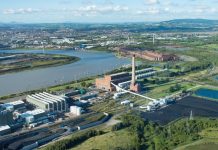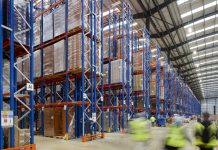Food-anchored retail parks and logistics spaces will continue to see the biggest upturn in valuations as the real estate industry recovers from the Covid-19 pandemic, according to new research commissioned by Auxadi, a leading provider of accounting, tax, payroll and SPV administration services to private equity, real estate and multinationals.
The majority (57%) of real estate investors across the UK, Europe and North America expect the food-anchored retail park segment to bounce back the quickest by 2023, as the combination of more space, click and collect facilities and accessible car parks prove more attractive than high streets in luring back shoppers. Of these, UK respondents were the most likely to back retail parks, with almost two thirds (63%) expecting to see this segment to lead the recovery.
Auxadi’s study, ‘Market Adaptations: Maximising New Growth Opportunities in the Real Estate Sector’, was based on interviews with 100 senior-level real estate investors with average assets under management of €14.4 billion.
The logistics sector is also expected to benefit from the rise in e-commerce, which grew by an estimated 27.6% last year, with more than half (54%) of investors expecting to see a recovery in valuations for the sector as investors look to buy up large-scale real estate to convert into warehousing and logistics centre for online retail businesses.
Other sectors viewed favourably over the coming years include two areas which were hit hardest during the height of the pandemic: high street retail (50%) and central business district offices (49%), with investors expecting to see these sectors recover as social distancing measures are lifted and employees return to the office following a prolonged period of remote working.
In contrast, only 20% of investors backed the alternative real estate segment’s ability to recover quickly as continued travel restrictions continue to hamper demand for hotels and student accommodation.
While alternatives may hold the least potential for recovery over the coming two years, investors expect the fundraising climate to see the biggest improvement for this strategy over the same timeframe, with nearly three quarters (73%) of investors holding this view. This is ahead of food-anchored retail parks (71%), industrial logistics and supermarkets (both 66%), while the strategies with the lowest potential for improved fundraising climate cited as high street retail and residential property (both 59%).
Victor Salamanca, CEO at Auxadi said: “The Coronavirus pandemic had a profound impact on the real estate industry, with numerous challenges impacting sectors previously viewed as impervious to external factors. However, with many nations now looking to exit their longstanding disease control measures, this study shows that investors are optimistic that the sector can not only recover but flourish in the coming years, with ample opportunities for investment before the recovery gets fully underway.
“Despite these challenges faced, investors appear confident in their ability to emerge from the pandemic, with widespread optimism for recovery across all sectors over the coming years. However, while investors have been successful in navigating Covid-related shocks over the past year or so, there are still question marks that remain about how strong the recovery will be should pandemic-induced factors such as remote working or online shopping remain beyond the end of local lockdown restrictions.”




















